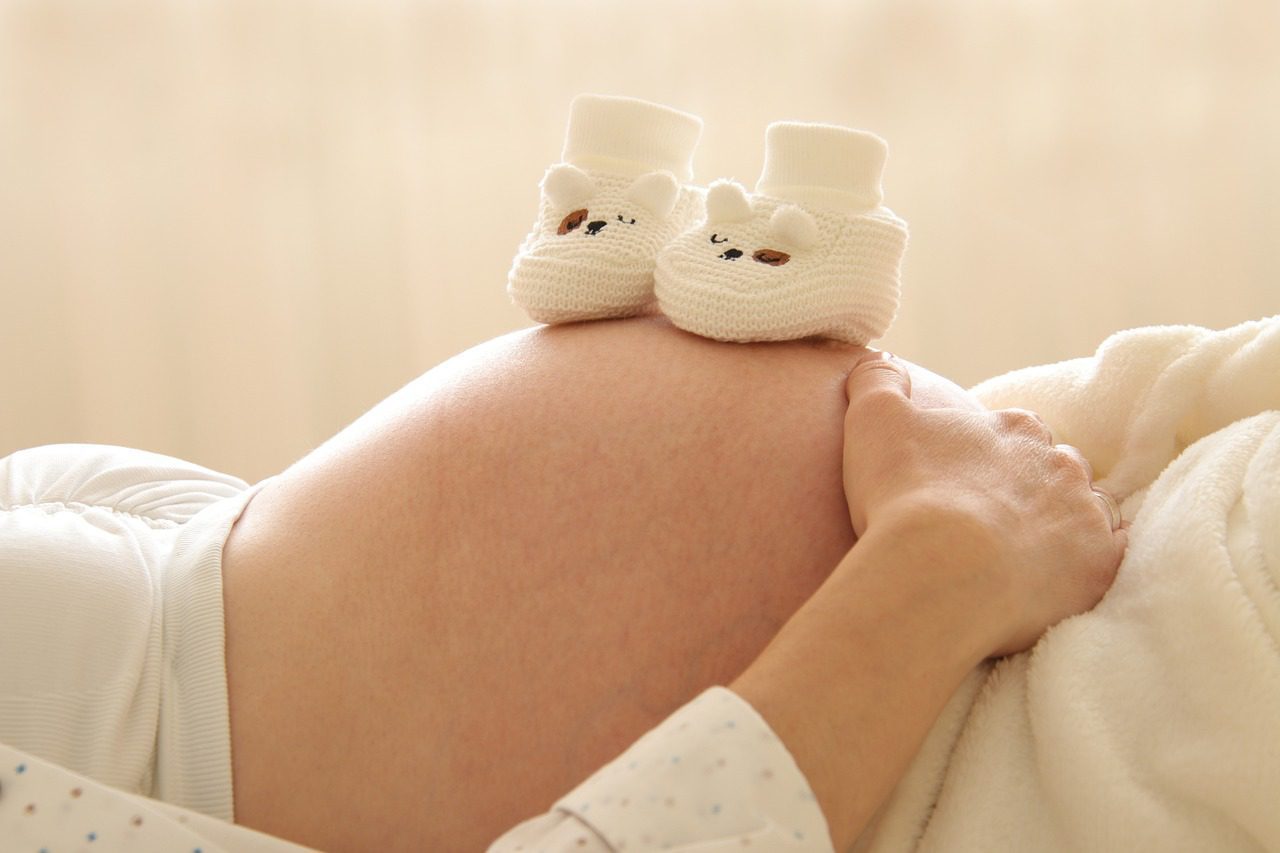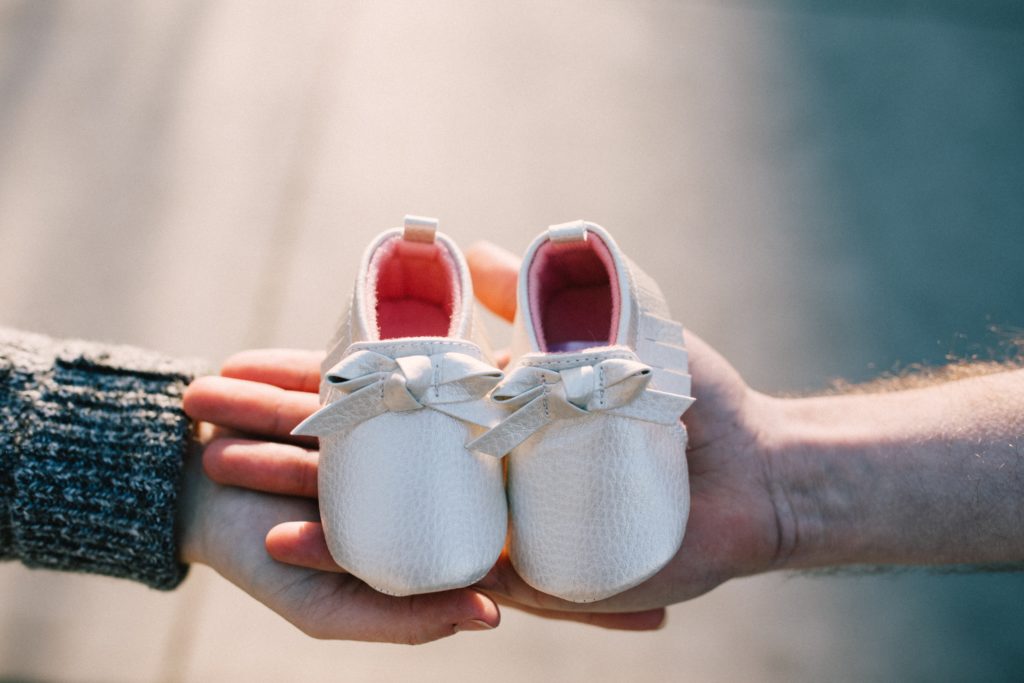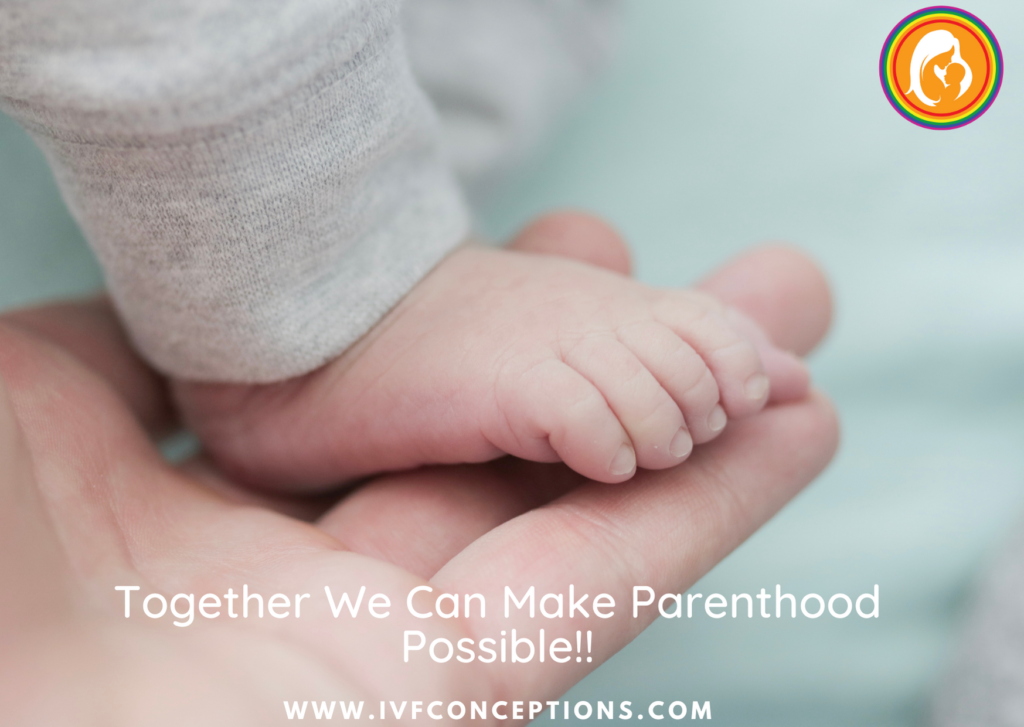Understanding the Genetics of Surrogacy: Does a Surrogate Mother Share DNA with the Baby?

When a surrogate carries a pregnancy, whether she shares DNA with the baby depends on the type of surrogacy arrangement. This article explains the genetic relationship between a surrogate and a child. The issue of surrogate baby DNA is of utmost importance, and we aim to provide you with a comprehensive understanding of this topic. By the end of this guide, we hope you will gain clarity and confidence in your decision to embark on the surrogacy journey. Let’s dive into the topic of “Is Surrogacy Baby Genetically Related To The Surrogate”.
When considering surrogacy, a common question from intended parents is “Will the surrogate mother share DNA with the baby?”
The answer depends on the type of surrogacy arrangement. In traditional surrogacy, the surrogate uses her own egg that is fertilized with the intended father’s sperm through IVF.
Since the surrogate provides the egg containing her genetic material, she will be biologically and genetically related to the child she carries.
However, in gestational surrogacy, the embryo is created using the intended mother’s egg and father’s sperm or from a donor.
The gestational carrier does not provide any genetic material, so the surrogate mother will not share any DNA with the baby born through this process. While she carries and gives birth to the child, she does not have a biological connection.
Understanding how traditional surrogacy versus gestational surrogacy differs in terms of genetics can help intended parents choose the right option when exploring building their family through surrogacy.
More resources for the surrogacy journey:
Surrogacy Meaning and Definitions
How to Start the Gestational Surrogacy Process? A step-by-step guide for Beginners
How Much Does Surrogacy Cost? Everything You Need To Know (in 2024)

Is Surrogacy Baby Genetically Related To The Surrogate?
The prospective IPs, do have questions like “Will the surrogate mother share DNA with baby”
To understand whether the child is genetically related to the surrogate or not, it is very important to discuss the two main types of surrogacy- traditional surrogacy and gestational surrogacy.
Traditional surrogacy – In traditional surrogacy pregnancy the surrogate contributes her own eggs for the process of fertilization. The sperm used is of the intended father.
So, the question is whether the surrogate is genetically related to the child, the answer is yes in the case of traditional surrogacy.
Since her egg is used in fertilization, she is the biological mother of the child. In this process, the surrogate goes through intrauterine insemination or artificial insemination procedure. So many people think that she might have legal rights over the child.
This is the reason why traditional surrogacy is rare in practice these days. This is due to the fact that it results in several legal complications and hence, is banned in most countries, and if it is present in any country it is rare in practice.
Gestational surrogacy – In gestational surrogacy, the egg from the intended mother or from an egg donor is fertilized with the sperm of the intended father or from the sperm donor.
The embryo is then transferred to the surrogate who will carry the child until birth. So, in vitro fertilization (IVF), which is a form of Assisted Reproduction Technique (ART) is used to transfer the embryo to the surrogate. In this case, the surrogate is not genetically related to the child. Instead, the person whose egg and sperm are used is the biological parent of the child.
Let’s cut the story short, in the gestational surrogacy process, a surrogate carries the child for the intended parents until the birth of the child and is not genetically related to the baby.
The Surrogate Baby DNA Connection in Gestational Surrogacy and Traditional Surrogacy
Surrogacy Types and Genetic Relationships
|
Type |
Surrogate Provides |
Intended Parents Provide |
Surrogate Shares DNA? |
|
Traditional |
Egg |
Sperm |
Yes |
|
Gestational |
Womb only |
Egg and Sperm/ or use an egg donor |
No |
The relationship between the gestational carrier and the baby can be a complex matter, particularly if you are unfamiliar with the surrogacy process. Many people assume that there is a genetic link between the surrogate and the baby. However, this is generally not the case. Whether a surrogate shares any genetic connection with the child depends on the type of surrogacy chosen.
- Gestational Surrogacy vs. Traditional Surrogacy
Broadly speaking, there are two types of surrogacy: gestational surrogacy and traditional surrogacy.
Gestational Surrogacy: This process involves using either the intended mother’s or a donor’s eggs for embryo transfer and fertilization.
Traditional Surrogacy: This process involves using the surrogate’s own egg for fertilization.
Now, let’s explore how these two types of surrogacy relate to surrogate baby DNA.
- Surrogate Baby DNA in Gestational Surrogacy
In gestational surrogacy, there is no possibility of the surrogate transferring her DNA to the child. This is because the intended mother’s or a donor’s egg is used in the creation of the pregnancy instead of the gestational carrier’s egg.
This complete separation of surrogate-baby DNA is a crucial point that ensures the well-being of all parties involved. It is one of several reasons why Southern Surrogacy, along with the majority of reputable surrogacy programs and fertility clinics, focuses solely on gestational surrogacies.
Traditional Surrogacy and Genetics
With traditional surrogacy, the surrogate provides her own egg that is fertilized using sperm from the intended father. Here is how DNA and genetics work in traditional surrogacy:
- The surrogate’s egg contains her genetic material, including DNA, chromosomes, and mitochondrial DNA. This accounts for 50% of the embryo’s genes.
- The intended father contributes his sperm containing 50% genetic material to fertilize the surrogate’s egg.
- Therefore, the surrogate is biologically and genetically the birth mother since it is her egg. She passes on 50% of her DNA to the baby.
- However, after birth the surrogate typically terminates her parental rights, meaning she is not the legal mother even though she is the biological mother.
So in summary, with traditional surrogacy, the surrogate does share 50% of her DNA with the child she carries and births on behalf of the intended parents. She is biologically tied while the intended father is also genetically related.
Legal Parentage if You Are Considering Surrogacy Process
While genetics determine biological connections in surrogacy, the legal rights and responsibilities are assigned differently based on the type of surrogacy:
- In traditional surrogacy, the surrogate may initially have parental rights that she then terminates after birth by agreeing to give the intended parents full custody.
- With gestational surrogacy, the carrier has no legal rights or duties toward the child since she did not provide any genetic material.
- Legal parentage is assigned based on whose genetic material (egg/sperm) was used to create the embryo through IVF, not who carried the pregnancy.
- In both arrangements, parenthood is ultimately granted to the intended parents – the woman who provides the egg and the man who provides the sperm.
- Legal consultation is vital to ensure parentage rights and duties are clearly agreed upon by all parties.
Surrogacy allows for the separation of biological and legal bonds between parents and children.
Legal vs. Biological Parentage in Surrogacy
|
Parent |
Traditional Surrogacy |
Gestational Surrogacy |
|
Legal mother |
Intended mother |
Intended mother |
|
Legal father |
Intended father |
Intended father |
|
Biological mother |
Surrogate |
The egg donor or intended mother |
|
Biological father |
Intended father |
Intended father |
 Legal Benefits of Gestational Surrogacy
Legal Benefits of Gestational Surrogacy
By exclusively offering gestational surrogacy services, we can provide you with substantial legal advantages. Let’s explore two primary benefits:
1. Reduced Legal Risk: Family law attorneys highly prefer gestational surrogacy due to its straightforward legal nature. Traditional surrogacy, where a genetic link exists between the surrogate and the baby, introduces additional legal complexities and potential challenges.
2. Emotional Clarity for Gestational Carriers: Carrying a child in the surrogacy process is already a complex and emotionally sensitive journey. Adding a direct biological connection to the baby can further complicate matters. Gestational surrogacy, by utilizing the intended parent’s or a donor’s egg, provides a clear distinction for gestational carriers, reassuring them that there is no genetic link between themselves and the child.
Considering these reasons, among others, our surrogacy program exclusively focuses on the gestational surrogacy process. If you are contemplating becoming a carrier, it is essential to consider these points, as they significantly contribute to your personal and legal security.
Do surrogates give DNA to the baby? Surrogate Mother Related to the Child?
No, it is not just possible. So, now the question is if the surrogate’s blood passes through the heart of the child, is the surrogate passing her DNA to the baby? The answer to this question is, No. The baby has its own blood flowing through its arteries and veins. And finally, the DNA is created from the egg and the sperm donor.
After the embryo is transplanted to the gestational surrogate, it continues to grow in the mother’s womb. The placenta is an important part of the pregnancy as it is not only used as a filter but also nourishes the baby. It only allows a few things to pass through it acting as a gatekeeper and not allowing the DNA to pass through it
This is the reason why gestational surrogacy is preferred in countries where traditional surrogacy is banned.
In gestational surrogacy, there is no dispute as to who is the legal mother and the legal father of the child. This is also why surrogacy agencies and IVF clinics prefer gestational surrogacy over traditional surrogacy.
More resources:
FAQ about the surrogacy process?
How long does the surrogacy process take?
What are the cheapest countries for surrogacy?

DNA Tests and Surrogacy
DNA testing plays an important role in surrogacy arrangements by confirming the genetic relationships:
- A DNA test performed on the newborn can prove whether the intended parents or egg/sperm donor are biologically related.
- This helps ensure accurate information is recorded on the child’s birth certificate regarding maternity and paternity.
- DNA tests provide certainty about genetic ties, which is important for both medical reasons and emotional reassurance.
Talking to Child about Surrogacy
Many parents who have a child through surrogacy plan to be open with them about it, typically in age-appropriate ways as the child grows:
- Telling the children about their origins can help them understand where their DNA comes from, such as an egg donor.
- It explains any lack of biological relationship to the woman who carried the pregnancy or gave birth.
- Being open about the use of a surrogate often makes it a natural, positive family story.
Conclusion for Is Surrogacy Baby Genetically Related To The Surrogate?
The simple answer is it depends on what type of surrogacy you are opting for.
Therefore, it is very important for the intended parents to make sure if they wish to have any genetic link with the surrogate mother or not. Based on this decision, they can opt for the correct types of surrogacy for them.
It is recommended to go for the gestational surrogacy process so that is legally secure and less emotionally traumatic for the surrogate mother as well.
At IVF Conceptions, we are committed to providing personalized care throughout the gestational surrogacy process. By utilizing a donor egg, we eliminate complicated and emotional concerns about surrogate baby DNA. Although the journey as a gestational carrier can be emotionally challenging, rest assured that you will not have the added complexity of a biological relationship with the baby.
If you’d like to learn more about IVF, Egg Donation, or surrogacy services globally, check out the rest of our website: IVF Conceptions. We offer legally secure and affordable surrogacy consulting services for FREE.

FAQs For Does a surrogate mother share DNA with the baby
As we have established, gestational surrogacy ensures there is no surrogate mother DNA connected to the baby. However, let’s address a few more common questions we often encounter from women considering surrogacy:
Does a Surrogate Mother Transfer DNA to the Baby?
No, surrogate mothers do not transfer DNA to the baby in the gestational surrogacy process. During the IVF process, the intended parent(s) contribute their own egg or choose a donor egg through a separate process. The gestational carrier does not contribute any DNA.
With the advancements in modern medicine, the gestational surrogacy process safeguards surrogates from sharing any DNA with the child. Through the use of donor eggs and sperm, the biological connection between the surrogate and the baby is eliminated.
The DNA of a surrogate baby depends on the process chosen by the intended parents. Some intended parents can use their own eggs and sperm, while others may require the use of donated eggs or sperm. In either case, there is no genetic link between the surrogate and the baby.
Surrogate babies, specifically those born through gestational surrogacy, are not biologically related to the surrogate mother. In gestational surrogacy, the surrogate, also known as a gestational carrier, carries and delivers a child for another couple or person. The embryo used in the surrogacy process is created through in vitro fertilization (IVF) using the eggs and sperm of the intended parents or from an egg and/or sperm donor.
In surrogacy, the term “biological mother” can have different interpretations depending on the type of surrogacy involved. In gestational surrogacy, the biological mother refers to the individual or individuals who provided the genetic material (eggs) to create the embryo. These individuals are typically the intended mother or egg donor.
Since gestational surrogacy involves the transfer of an embryo created from the intended parent’s genetic material, the surrogate mother does not share blood with the baby. The baby receives its blood supply from the placenta, which develops after the embryo is transferred to the surrogate’s uterus.
No, the baby does not look like the surrogate mother as she does not contribute genetically to the child in gestational surrogacy, the baby is not expected to resemble the surrogate mother based on genetic factors.
Are surrogate babies related to the surrogate?
No, the babies are related to the intended parents or commissioning parents. A gestational carrier is just a carrier for the baby.
Can a surrogate mother be genetically related to the child?
In the case of traditional surrogacy, it is possible that the surrogate is genetically related as her eggs are used for pregnancy. However, this form of surrogacy is not common due to legal and emotional complications.
Do surrogate mothers pass DNA?
No, surrogate mothers do not pass DNA to the baby in gestational surrogacy. However, in the case of traditional surrogacy, the baby is half genetically related to the surrogate mother.
Reference used:
https://www.americansurrogacy.com/parents/do-surrogate-mothers-share-dna-with-the-baby
https://my.clevelandclinic.org/health/articles/23186-gestational-surrogacy
https://www.americansurrogacy.com/parents/do-surrogate-mothers-share-dna-with-the-baby

 Legal Benefits of Gestational Surrogacy
Legal Benefits of Gestational Surrogacy